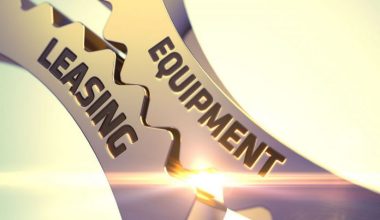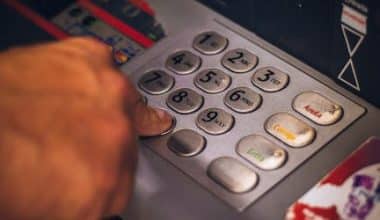Business write-offs are deductions from profits. Write-offs are business expenses that are deducted from revenue to determine total taxable revenue for income tax purposes. A freelance interior designer, for example, can claim car mileage as a tax benefit because they travel to meet with clients.
When it comes to what you can and cannot claim as a business write-off, there might be some uncertainty. The good news is that if you have the correct information, it’s quite simple to understand. Small business write-off expenses are explained in this straightforward guide.
What are Business Write-offs?
Business write-offs are expenses that are necessary for the operation of your business and can be claimed as tax deductions. These expenses are deducted from your revenue to determine your business’s total taxable income. The more expenses your small business can deduct as write-offs, the less tax you will have to pay.
However, in order to qualify for write-offs, a business must be managed for profit and cannot be a hobby. The majority of for-profit business expenses are partially deductible.
According to the IRS, a business expense must be both usual and required in order to be deducted. Simply expressed, the expense must be normal in your sector and necessary for you to accomplish your job. However, the expenses do not have to be absolutely required in order to be considered necessary.
What are Business Expenses?
If you work as an employee for a corporation, you will almost certainly not need to purchase anything out of pocket in order to perform your job. In reality, the Fair Labor Standards Act (FLSA) prohibits employers from charging employees for their own equipment if doing so would lower their compensation below the minimum wage. People who manage their own enterprises, on the other hand, suffer a slew of personal expenses.
A retail business owner, for example, must purchase inventory. Someone who owns a restaurant must buy food. Toys and play equipment must be purchased by someone who runs a daycare center. And many business owners want assistance in running their operations, whether full-time workers or part-time independent contractors.
The IRS permits business owners and self-employed individuals to write off these personal expenses against their income because they are not for personal use. That is, the business owner can deduct the cost of these expenses (or a portion of them) from their overall income, resulting in a lower tax burden.
Why Should You Write Off Business Expenses?
In some cases, a self-employed individual or business owner may be able to write off enough taxes to move into a lower tax band. This is totally legal if done in accordance with the IRS’s accounting rules and regulations. In fact, avoiding writing off certain expenses is unlawful, as doing so might inflate the appearance of your income beyond what actually reaches your bank account.
Personal Expenses vs. Business Expenses
As part of your business taxes, personal, living, or family expenses cannot be written off. A small business owner, on the other hand, can deduct a purchase that serves both personal and business purposes. You simply need to divide the expense appropriately between personal and business use. Then you can write off the business portion.
For example, suppose you wanted to deduct the cost of your home internet. You must determine how much you utilize for business. Assume you work 40 hours a week, or 160 out of 672 hours in a month, or 24 percent. If your monthly internet payment is $62, you might deduct 24 percent of that amount, or $14.88.
What Small Business Expenses Can You Write Off?
It is critical to understand what expenses you may and cannot claim or write off for your small business. It can help you reduce your income tax liability or possibly enhance your refund. Here are some of the most significant small business write-offs.
#1. Promotion and advertising
You can deduct the expense of advertising and marketing, which may include:
- Hiring a freelancer to create a business logo
- What is the cost of printing business cards or brochures?
- Needing to buy advertising space in Internet media
- Clients receiving greeting or thank you cards
- Creating and establishing a new website
- Putting together a social media marketing campaign
- Being an event sponsor
Remember that you cannot deduct expenses made to influence legislation or to sponsor a political campaign.
#2. Business Lunches
Most of the time, you can deduct 50% of your food and beverage expenses if they qualify. To be qualified, you must meet certain requirements.
- The cost must be a common and necessary part of doing business.
- The lunch cannot be a lavish or ostentatious celebration.
- At the dinner, an employee or the business owner must be present.
You can also deduct 50% of the expense of providing meals to your staff. So, whether you had a pizza party with your team or a lunch provided by the office, it’s deductible.
Make sure you preserve all relevant documents, including the amount of each expense. Along with the location and date of the dinner, as well as the business relationship you have with the individual you’re with. The simplest method is to write the information on the reverse of your receipt.
#3. Commercial Insurance
Certain premiums paid for business insurance may be deducted. These could include:
- Property insurance for equipment, structures, or furniture
- Liability insurance
- Employee dental, vision, and health insurance plans are available.
- Insurance for professional liability and malpractice
- Workers’ compensation insurance
- If you use business vehicles, you must have auto insurance.
- Life insurance that protects your employees as long as you are not the policy’s beneficiary.
If your business is forced to close due to a fire or other unforeseen events, consider purchasing business interruption insurance.
#4. Bank Charges
Annual or monthly service charges, transfer fees, or overdraft fees for your bank or credit card may be deductible. Transaction costs or merchant fees paid to third-party payment processors may be deductible. Platforms such as Stripe and PayPal may fall within this category.
Keep in mind that any fees directly tied to your personal credit cards or bank accounts cannot be deducted.
#5. Use of Your Car for Business
If you need to use your personal vehicle for business activities, you can deduct certain operating costs. If you use it for both business and personal reasons, make sure to only deduct the business-related usage.
There are two approaches to calculating your automobile expenses. You can choose whatever option offers you the most tax benefit.
- Mileage is charged at the standard rate. This rate is now $0.56 per mile, and it is multiplied by the number of business miles driven.
- Method of actual expenditure. This method entails adding up all of your vehicle’s operational expenses. Gas, repairs, oil, and tires are examples of these expenses. Registration fees, leasing payments, and insurance charges are all possibilities. You would next double those expenses by the percentage of business kilometers driven.
Both strategies necessitate maintaining precise records and logs for your business mule. You can track and monitor your trips with an app, or you can alter your mileage to be more efficient. Make sure to carefully document items like the total number of miles driven, the time and location of your journey, and the purpose of your trip.
You cannot deduct the miles driven on your way to work. These are classified as personal commuting expenses.
#6. Contract Work
You may need to engage a freelancer or independent contractor to help you with your business. If you do, you can claim their fees as a business expense. However, if you pay a contractor more than $600 throughout the tax year, you must give them the Form 1099-NEC by January 31 of the following year.
#7. Depreciation
Your business may occasionally require the acquisition of assets like equipment, furnishings, or other assets. When this occurs, depreciation laws require you to spread out the costs of those assets. Instead of deducting the entire amount at once, this must occur over the course of the years they are utilized.
Depreciation charges can be expensed upfront, resulting in a faster tax advantage.
#8. Education
Some education fees are totally deductible if they provide value and improve your capacity to accomplish your job. The IRS will consider whether the spending maintains or improves your abilities. The following are some of the most prevalent business education expenses.
Certain courses or programs will help you develop your skills in your field
#9. Online seminars and webinars
- Certain trade or professional publication subscriptions
- Workshops to help you enhance your skills and knowledge
- To and from classes or workshops, any transportation expenses
#10. Expenses for a Home Office
If you work from home, you may be eligible to deduct certain home office expenses. There are two ways to accomplish this.
With the simplified technique, you deduct $5 per square foot of business-related space in your home. And the traditional technique, in which you keep track of all your actual expenses.
- To be eligible for home office deductions, you must meet two requirements:
- You must use your house for business activities on a regular basis.
- Your home office should be the primary location where you conduct business.
If you use the conventional method for home office deductions, you must file Form 8829 along with your Schedule C.
What Small Business Expenses Can You Not Write Off?
While the expenses listed above can usually be written off, here’s a list of what can’t:
Capital expenses, such as business beginning costs, assets, and renovations, are not deductible. You can recoup them instead through depreciation, amortization, or depletion.
- Personal Expenses: Personal, living, and family expenses are not tax deductible. However, if a portion of a cost is used for business purposes, you can deduct a portion of it.
COGS is an abbreviation for the costs associated with supplying items to customers (e.g., raw materials, storage, direct labor, factory overhead). These expenses are subtracted from your gross receipts to get your annual gross profit. - Expensive client entertainment:The Tax Cuts and Jobs Act of 2017 made client entertainment nondeductible, even if you attend with a client and business is discussed.
When in doubt, do your homework or consult with a CPA. Even if an expense is ordinary and necessary, you may not be able to deduct it in the year you paid it, or at all.
How To Write Off Business Expenses
Now that we’ve discussed a few types of business expenses that can be written off, let’s discuss how to write off these expenses:
#1. Sort purchases into two categories: qualifying and non-qualifying.
Before the calendar year begins, you should have a good sense of which expenses can be written off as business expenses, and you should be utilizing software to track your expenses.
Using a credit card or debit card dedicated solely to business-related purchases will make your accounting much easier at the end of the year. This business card could be used to pay for your website, freelance contractors, social media ad credits, transportation taken to business meetings, and the hardware you use for your business (a laptop, for example).
It’s important to remember that not everything you use for business is fully deductible. For example, there are very specific rules regarding whether or not you can deduct a business trip—namely, the trip must be planned and the majority of its days must involve conducting some sort of business. You also cannot deduct all gas purchases for a vehicle that is used personally, but you can deduct $0.56 per mile.
There are a variety of qualified business expenses that can be deducted, and keeping track of your purchases throughout the year, even if they appear to be pennies and dimes, can add up to a big tax write-off at the end of the year.
#2. Compile Qualifying Expenses
If you’ve kept track of your business expenses throughout the year, it should be simple to add them up so you can deduct them from your gross income. Some accounting software, such as Quickbooks, will do all of this for you, but if you’re doing it the old-fashioned way by saving receipts, that’s fine as well—you’ll just have to spend more time adding it all up when it comes time to file your taxes.
You may be wondering what constitutes a business deduction for the tax year. Each year, the IRS publishes a publication that lists small business tax deductions and how they work. Every small business owner should become familiar with these common business tax deductions so that they know which expenses to track.
#3. Include the total on Schedule C.
Once you’ve totaled everything, you’ll include the totals on Schedule C of Form 1040, which is used to file personal income taxes whether you’re employed, self-employed, or run a business as a single proprietor or LLC.
However, if you have structured your business operations as a corporation, you will need to file a corporate tax return, and the total amount of business expenses will be subtracted from your gross income to arrive at your adjusted gross income, which is the amount on which you will pay self-employment tax.
The self-employment tax is 15.3 percent, which is higher than most people want to pay in income tax, which is why many small business owners choose to structure their business as a corporation, putting themselves on the payroll and paying themselves a salary so that they don’t have to pay the self-employment tax on the entirety of their income, just a smaller portion of it.
Can Employees Claim Business Expenses?
You can deduct workplace expenses incurred before 2018, however, you cannot deduct business expenses if you are an employee (in most situations).
If you are in the Armed Forces Reserves, a qualified performing artist, or have employee expenses related to an impairment, you can deduct certain items from your income. While this is also true for self-employed individuals, employees have much less leeway for tax write-offs than self-employed individuals.
Employees, for example, can no longer write off a home office tax deduction even if they work from home, although self-employed individuals can use the usual home office tax deduction (or a comparable technique).
It’s important to note that some states do allow employees to write off unreimbursed business expenses on their state tax returns. If you’re employed, it doesn’t hurt to do a quick internet search to see what unreimbursed expenses, if any, you can claim on your income tax return. This is great news for working individuals who have to shoulder an actual expense as part of their profession. An example would be teachers who need to dip into their personal funds.
Reduced Educator Expenses
Speaking of teachers and unreimbursed expenses, there are federal tax deductions available for employees of an organization to use to reduce their taxable burden, such as the Educator Expense Reduction, which allows teachers to take a $250 tax deduction ($500 for a married couple filing jointly, if both taxpayers are teachers) to defray the cost of classroom supplies they have personally paid for.
To take advantage of this tax deduction, you must work at a K-12 institution for at least 900 hours in the tax year as a teacher, aide, counselor, or administrator. Conduct an internet search to see whether tax deductions are available for your career.
How Much Can You Deduct as a Business Expense?
You can frequently deduct 100% of qualifying ordinary and necessary business expenses. However, according to Lei Han, CPA, “It’s important to be aware of the limits on certain types of deductions. For example, the costs of meals provided by restaurants for business purposes can be 100% deducted in 2021 and 2022 (due to the Consolidated Appropriations Act), but the normal limitation is 50%. Additionally, you can only deduct up to $25 in business gifts per person, per year.”
When Can Small Business Expenses Be Deducted?
When adopting the cash accounting technique, you deduct expenses in the tax year in which they were paid, thus you would report expenses paid in 2022 when filing your 2022 tax return.
If you use the accrual method of accounting, you will deduct expenses when you become liable for them. For example, if you hired a web designer and they completed the job in December of 2022 but you didn’t pay them until January of 2023, you would deduct the expense for the 2022 tax year.
Related Articles
- HOW TO REDUCE TAXABLE INCOME: Best Simple Strategies!
- What Can I Write Off On My Taxes In 2023? (Detailed Guide)
- MORTGAGE INTEREST DEDUCTION: Can You Deduct Mortgage Interest?
- BUSINESS EXPENSE CATEGORIES: Best 2023 Business Expense Categories to Consider
- How To Calculate The Net Pay: Simple Guide






